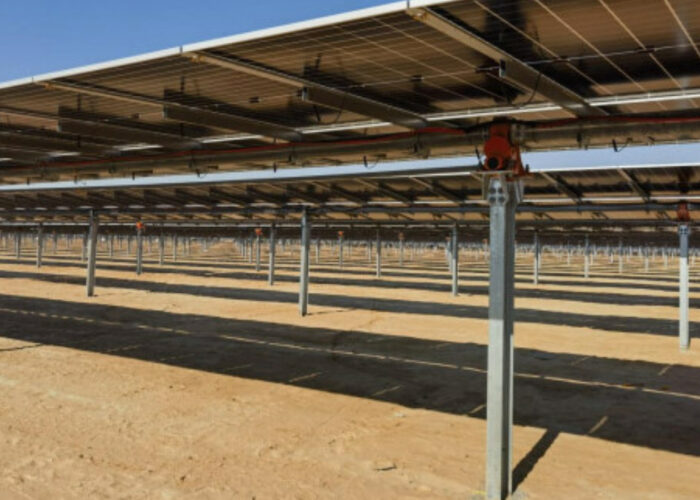In President Trump's statement imposing a 30% import duty on all foreign made crystalline silicon solar cells and modules reference was made to renewed efforts that would be made to resolve the trade war with China over polysilicon duties on US producers, effectively locking them out of the market.
Both Hemlock Semiconductor and REC Silicon campaigned to highlight the significant impact the last trade war has had on their companies with significant production curtailment and the loss of hundreds of jobs already.
Try Premium for just $1
- Full premium access for the first month at only $1
- Converts to an annual rate after 30 days unless cancelled
- Cancel anytime during the trial period
Premium Benefits
- Expert industry analysis and interviews
- Digital access to PV Tech Power journal
- Exclusive event discounts
Or get the full Premium subscription right away
Or continue reading this article for free
Although REC Silicon is headquartered in Norway it produces both conventional ‘Seimens’ process polysilicon and FBR (Fluidized Bed Reactor) bead polysilicon for multicrystalline ingot/wafer production in the US and is running plants at only around 50% utilization rates.
REC Silicon has been unable to supply customers in mainland China since polysilicon anti-dumping duties were imposed.
In a statement addressing the issue after new 30% duties were imposed, impacting key market leaders from China, such as ‘Silicon Module Super League’ (SMSL) members JinkoSolar, Trina Solar and Canadian Solar, which are major suppliers to the US market, Tore Torvund, REC Silicon's CEO commented:
“It is imperative that the US Administration take constructive steps to resolve this prolonged harmful dispute in the near term. In times of rising global polysilicon demand, opportunities for US polysilicon manufacturers, the industry's technology leaders and the most competitive producers in the world, should be experiencing healthy expansion, not rapid contraction. This Administration was elected to support US workers, and we encourage the US Trade Representative to conclude an agreement to protect our dedicated and innovative US employees. REC Silicon can out-compete our foreign rivals and we can do it from our manufacturing locations here in the United States. We simply need access to the global market, which can be achieved by the discussions provided for in the President's announcement.”
Torvund was right to point out that US-based polysilicon producers have been technology leaders with Hemlock well known to produce some of the highest quality polysilicon at large-scale serving both leaders in the semiconductor manufacturing industry such as Intel and high-efficiency solar cell producers in China, Asia and Europe.
REC Silicon has been leading low-cost polysilicon producers through its successful development and volume production of FBR technology, the only company to have achieved the feat.
Indeed, REC Silicon is in a Joint Venture (JV) in China to build a second-generation FBR plant to circumvent the China duties and could be operational in 2018.
The biggest challenge facing Hemlock and REC Silicon is that US negotiations with China face an uphill task as China has supported local polysilicon producers to build new and expand existing plants to meet current and future demand for its growing solar industry so that imports are not required.
Since imposing heavy duties on US polysilicon, China has been supplementing demand by using South Korean producers such as OCI and German producer Wacker.
In just a few years, China could be self-sufficient in polysilicon production although as the demand for higher-purity polysilicon continued to increase, due to the migration to PERC cell technology and monocrystalline wafers, some imports from Korea and Germany may still be required but there will be a time when sufficient high-purity polysilicon can be sourced in China.






